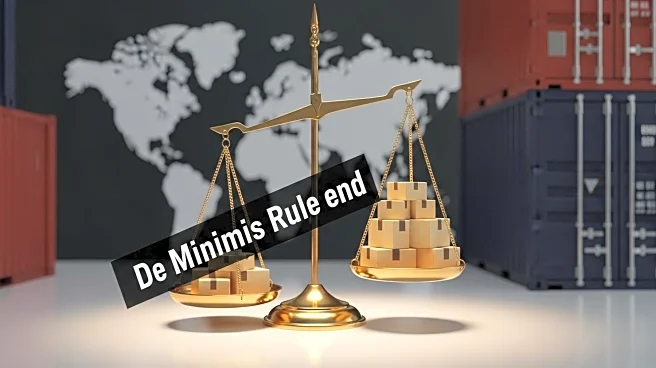What is the story about?
What's Happening?
President Trump has issued an executive order to suspend the 'de minimis' rule, which allowed duty-free imports of low-value goods into the U.S. The rule, dating back to the Tariff Act of 1930, was expanded in 2016 to exempt items valued up to $800 from tariffs. This change facilitated the importation of goods from online retailers like Temu and Shein. The suspension aims to address safety concerns and reduce the trade deficit by ensuring all imports undergo customs inspections and are subject to tariffs. The move has led to international shipping services temporarily halting deliveries to the U.S. as they adjust to new paperwork and payment processes.
Why It's Important?
The suspension of the 'de minimis' rule could lead to higher prices for U.S. consumers, affecting the affordability of goods from popular online retailers. It may also impact small businesses that rely on importing low-cost items. The decision reflects broader trade policy shifts under the Trump administration, emphasizing domestic production and safety standards. The change could influence global trade dynamics, as other countries may reconsider their own 'de minimis' thresholds. Consumers and businesses will need to navigate potential shipping delays and increased costs.
What's Next?
As the new policy takes effect, consumers may face adjustments in shipping and return policies, especially during the holiday season. Businesses will need to adapt to increased tariffs and customs inspections, potentially altering their supply chains. The policy could lead to legal challenges or diplomatic discussions as international stakeholders respond to the changes. Monitoring the impact on consumer behavior and trade relations will be essential for policymakers and industry leaders.
Beyond the Headlines
The suspension of the 'de minimis' rule highlights the tension between consumer interests and regulatory standards. It raises questions about the balance between free trade and protectionism, as well as the ethical implications of importing goods with minimal oversight. The policy shift may prompt discussions on the role of government in ensuring product safety and supporting domestic industries.















